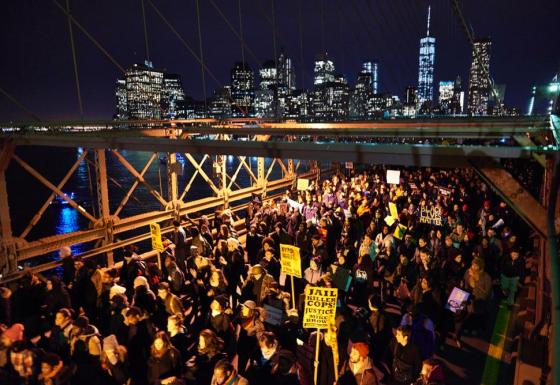Over the past few weeks I’ve posted a fair amount of thoughts on various social networks related to Ferguson, Eric Garner, privilege, and the church. Needless to say, I’ve received a fair amount of pushback in the process. The comments have been: “I don’t know all the facts.” “I wasn’t on the grand jury.” “I’m just following the latest media outrage.”
 But what if I’m right? What if this is a critical juncture for racial “issues” in the United States, and, therefore, the world. (I use issues in quotes here because we’re talking about people and when people call these protests and media coverage issues, I get angry) What if the church stands idly by as our culture faces these debates head on? What if we’re the ones with our hands in our pockets when the world is looking for a people who will take a stand?
But what if I’m right? What if this is a critical juncture for racial “issues” in the United States, and, therefore, the world. (I use issues in quotes here because we’re talking about people and when people call these protests and media coverage issues, I get angry) What if the church stands idly by as our culture faces these debates head on? What if we’re the ones with our hands in our pockets when the world is looking for a people who will take a stand?
We must all strive to know and love our neighbor, and right now that means bending down and listening to the muted cries of “I can’t breathe!”
Rather than speak on this subject myself I want to highlight the thoughts of others who have much more to add than myself.
Here’s Trillia Newbell’s urge for us to be people who listen:
“You don’t have to agree with all of the issues surrounding the case. We can all disagree about how the case was handled. We can disagree with intent of the officer, etc. But what we can’t ignore is that there is an entire community of people of all colors (but majority Black) who are mourning and grieving. We can’t ignore that.”
Thabiti Anyabwile sharing his thoughts on why it could have so easily been him.
I’ve tried in conversation to figure out why the situation with Brown and Ferguson has erupted into a national debate and not some other situation with a “cleaner” victim and “dirtier” officer. I don’t know why God in His providence chose this situation. But perhaps it’s to expose to us–if we’re willing to see–the prejudices and biases we harbor and pass around without thinking. Perhaps it’s the messier situations that bring to surface the deeper matters of the heart.
Lastly, this post from Joshua DuBois is hard to read. He recounts the story from a year ago when police went after he and some friends because of a racist restaurant employee.
It is a little over a year back. I am with a few friends at a pizza spot in D.C., on Mass Ave., just about 10 blocks from the White House. One friend gets into the mildest of arguments about the pizza we were served—the type of pizza we were requesting, one slice being cold, and the clerk refused to warm it up, etc. For whatever reason—maybe because our suits, doctor’s scrubs, and government badges aren’t on that day, just jeans and hoodies—the young man tells us to eff off and keep it moving. He goes on to serve the next customer.